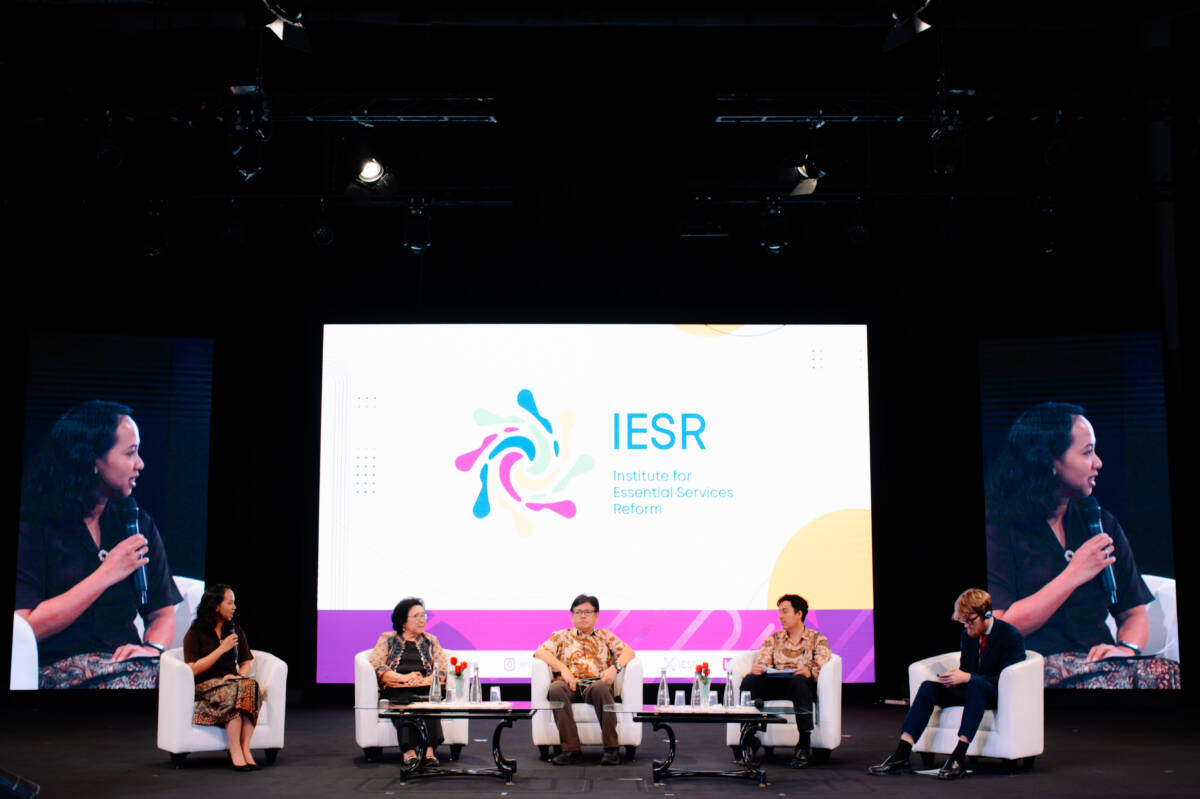Jakarta, 15 December 2023 – The Indonesian government continues to improve in terms of strengthening its commitment to climate change mitigation. Since starting to aggressively commit to climate mitigation in 2021, the Indonesian Government has continued to carry out follow-up actions through various assessments of funding commitments and creating decarbonization roadmaps in each sector.
Nurcahyanto, Policy Analyst for the Ministry of Energy and Mineral Resources (MEMR), said at the launch of the Indonesia Energy Transition Outlook (IETO) 2024 report organized by the Institute for Essential Services Reform that one of the efforts currently being carried out by the government through the Ministry of Energy and Mineral Resources is to carry out revision of the National Energy Policy (KEN). It is hoped that the results of the revised KEN will be more relevant to Indonesia’s current efforts to carry out comprehensive decarbonization, especially in the electricity sector.
“Target revision (KEN) is only a method based on numbers, but from an implementation perspective it must be supported by regulations and we need to optimize it. For example, in carrying out early retirement for PLTUs, a road map needs to be prepared, as well as consolidation with related ministries/institutions,” he said.
The issuance of Presidential Decree 112/2022 is one of the guiding documents for the decarbonization of Indonesia’s electricity sector, with the main point being to accelerate the cessation of coal-fired power plants.
August Axel Zacharie, Head of Energy Cooperation, Danish Embassy, said that in the global context, Indonesia’s position as a developing country (emerging economy) is an investment attraction in itself, but Indonesia needs to prepare a supportive ecosystem.
“Investment needs for the energy transition, which reach approximately 1 trillion USD until 2050, must be seen as not just building infrastructure, but within these cost requirements there are community aspects, job transition, quality of life, and other non-physical aspects,” added August.
Still related to the high need for investment in renewable energy, and the government’s obligation to guarantee energy security, the Indonesian Government provides energy subsidies. However, this policy is not a sustainable policy.
Evita Herawati Legowo, PYC Senior Fellow, stated that it is necessary to think about a more targeted method for providing energy subsidies.
“There needs to be involvement of all parties in this matter, not just collaboration but a clear division of tasks as to who does what, starting from industry, research, energy, as well as investors,” said Evita.
The Indonesian Government’s commitment to decarbonization is a binding guideline. Delivered by Unggul Priyanto, Main Expert Engineer, BRIN, especially after 2060, all energy sources must come from clean energy sources.
“(The use-ed) LNG, or natural gas, is one option during the transition. But after 2060, like it or not, it has to be replaced with a truly clean (energy source-ed),” he said.

